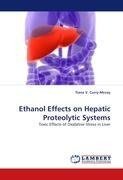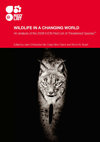
-
 Anglický jazyk
Anglický jazyk
Ethanol Effects on Hepatic Proteolytic Systems
Autor: Tiana V. Curry-Mccoy
Excessive ethanol consumption causes liver injury, resulting in steatosis (fatty liver), alcoholic hepatitis, fibrosis, and ultimately cirrhosis. About 15% of alcoholics develop cirrhosis, this particular liver disease is normally irreversible. However,... Viac o knihe
Na objednávku
54.63 €
bežná cena: 60.70 €
O knihe
Excessive ethanol consumption causes liver injury, resulting in steatosis (fatty liver), alcoholic hepatitis, fibrosis, and ultimately cirrhosis. About 15% of alcoholics develop cirrhosis, this particular liver disease is normally irreversible. However, alcoholic fatty liver and, alcoholic hepatitis can be reversed. Ethanol-induced liver injury is, in part, caused by oxidative stress resulting from enhanced oxidant formation. One oxidant, peroxynitrite (PN), is a by-product of ethanol metabolism and is generated by the induction of nitric oxide synthase. This leads to the increased generation of nitric oxide which reacts with superoxide to form PN. PN causes the nitration of proteins by forming 3-nitrotyrosine adducts on their tyrosine residues. Three-nitrotyrosine adducts can alter the biological activities of proteins. Degradation of proteins also can be altered by the stress of oxidants on the lysosome and proteasome, the two principal proteolytic systems of the cells.
- Vydavateľstvo: LAP LAMBERT Academic Publishing
- Rok vydania: 2010
- Formát: Paperback
- Rozmer: 220 x 150 mm
- Jazyk: Anglický jazyk
- ISBN: 9783838358499












